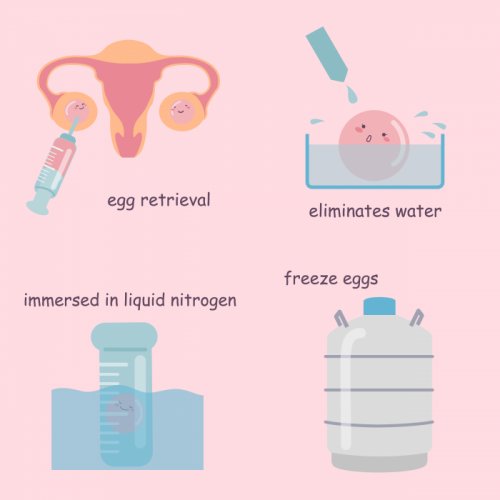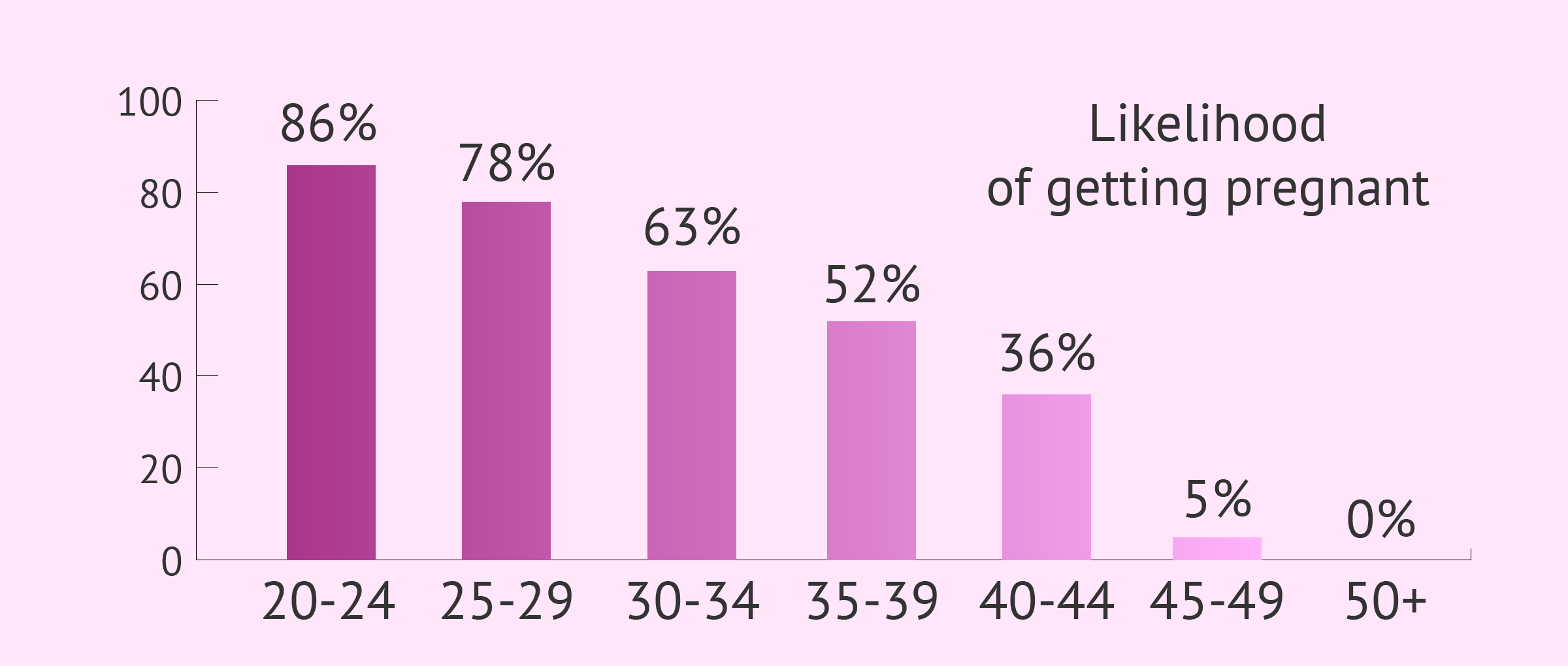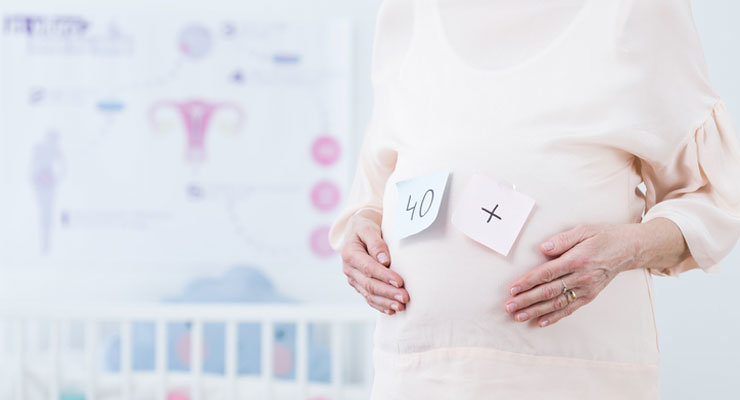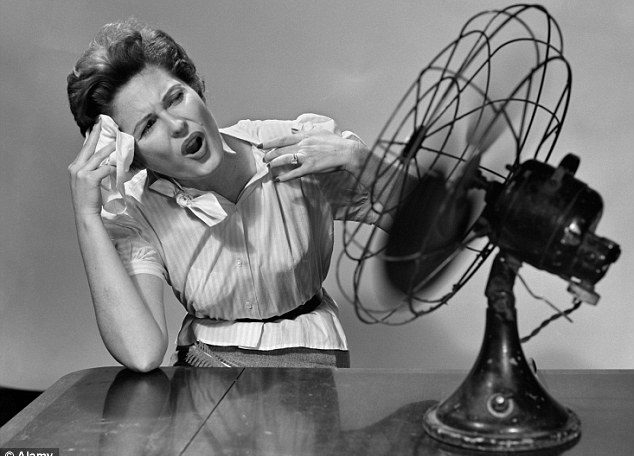So many women who want to embark the journey of motherhood one day prefer to wait because they want to live their lives before becoming tied down while starting a family. That means, plenty of women in their 20’s prefer to finish school, establish their careers, travel, enjoy their nights out on the town, and want to sleep in each weekend after having long weeks at work or at school. But how hard is it waiting and getting pregnant at 35 or after? Claim Your 20 Free Pregnancy Tests – Click Here
That means, in order for these women to do that, they must not have kids. Because, with kids and with any family in the picture, then these women will not be able to live their lives.

Fertility drops over time
Yet, at the same time, these particular women also realize that they cannot wait too long to start their families because they have believed for a very long time that once they hit 35 years of age- their fertility drastically drops.
And, this is why so many women are spending thousands of dollars to freeze their eggs so they can have their kids whenever they are ready regardless of age while they are using their young eggs. However, with egg freezing, there is no guarantee of it working either. And, this only means these women are completely conflicted about what to do.

They want to live their lives and wait to start their families, but they also cannot wait that long either because they know that their fertility has an expiry date. This means then they will start wondering what kind of sacrifices they will need to make since they cannot have their cake and eat it too.

Studies show not as drastic drop
But there is some great news! News that women who are in this position would absolutely be relieved to hear. Recent studies conducted have indicated that women’s fertility does not drop significantly right after 35.
Studies that were conducted back in 2004 had indicated that according to Obstetrics & Gynecology, over 80% of women from the ages of 35 to 39 had successfully conceived within a year of trying to conceive by having intercourse around 2 times a week. And, women from the ages of 27 to 34 only had a slightly higher percentage of getting pregnant within a year than their 35 to 39 year old counterparts.
Additionally, a very recent study that was released in Fertility and Sterility indicated that the percentage of women that got pregnant within a year that were from the ages of 35 to 40 was at 78 percent. And, women from the ages of 20 to 34 that had gotten pregnant within a year fell at around 84 percent.
With that said, even though the odds of women from the ages of 35 to 40 getting pregnant within a year are noticeably lower than their younger counterparts – the drop is not so significant to the point that these women should be worrying about getting pregnant under 35. They still have several more years even after that to achieve a healthy pregnancy, and the odds are still in their favor that they will conceive within a year.

However, at the same time, even though women at 35 are not all that significantly less fertile than their younger counterparts, women should not wait until they are after 40 either to conceive. Because, after 40, that is when women’s fertility does start to drop significantly. But these women should feel some sense of relief to know that they do not have to rush to start their families as much as they had initially had believed.

Please don’t wait until 40
That means they can relax about starting motherhood at 35, and if they even were to start a few years after, that would be okay too. But by 40 is when they should start getting concerned. Many women however do get pregnant after 40 with healthy babies as well, and many do have complication-free pregnancies.
However, the risk is also higher that if women at 40 start motherhood then, then they could end up running into more problems with not only conceiving but the odds of them not maintaining a pregnancy full term is also higher.
The odds of them having kids with chromosomal abnormalities like Down’s Syndrome is also higher due to the fact that eggs in a woman that is 40 or over start to lose their quality. But not so much from 35 to 39.


Steps to take to get pregnant
Regardless of the age that a woman decides to conceive, there are plenty of things she will need to do in order to maximize her chances of having a healthy pregnancy. The steps she will need to take in order to prepare her body well for conception are:
-
Go see her doctor for a preconception appointment
-
Cycle monitoring through body basal temperature taking or cervical mucus tracking
-
Taking prenatal vitamins which includes folic acid supplements
-
Sticking to the fertility-friendly diet
-
Make the appropriate changes in weight with the guidance of a dietician that is knowledgeable in fertility, if needed
-
Encourage her partner to keep his fertility healthy by getting him to take male fertility-boosting supplements and to reduce heat getting trapped in the groin area
-
Getting from 7 to 9 hours of quality sleep each night
-
Manage stress in a healthy and effective way
-
Quit bad habits (smoking, drinking, doing drugs, and eating junk food)

With all of that said, women that want to get pregnant, whether they are 20 or 40 are responsible for doing these actions in order to maximize their chances of a healthy pregnancy happening.
Because a young woman in her early 20’s can easily end up with pregnancy complications or other issues that would revolve around her unborn baby if she did not take the proper steps to keep her chances high of having a healthy pregnancy.
The bottom line is that age is a lot more meaningless than it has been originally thought when it comes to women’s fertility, up to age of 40 that is anyway. These women in their 20’s that want to become moms one day but not quite yet can now sleep at night well by knowing that they do not need to rush as much as they had originally thought to start their families. With that said, they can explore who they are and live their lives a little longer than they had originally thought.










Comments